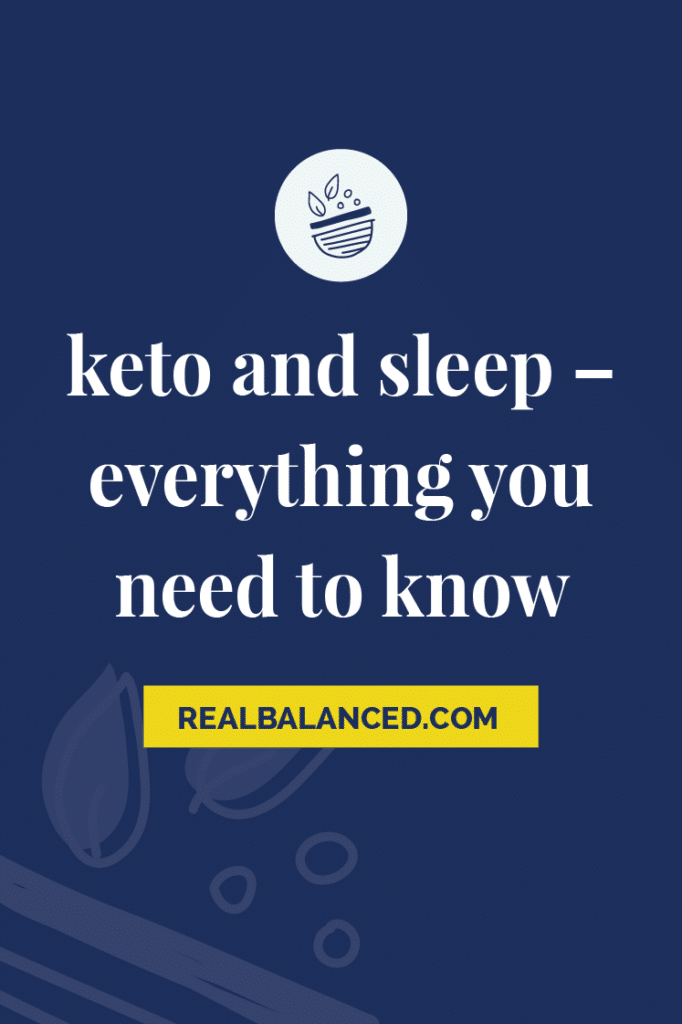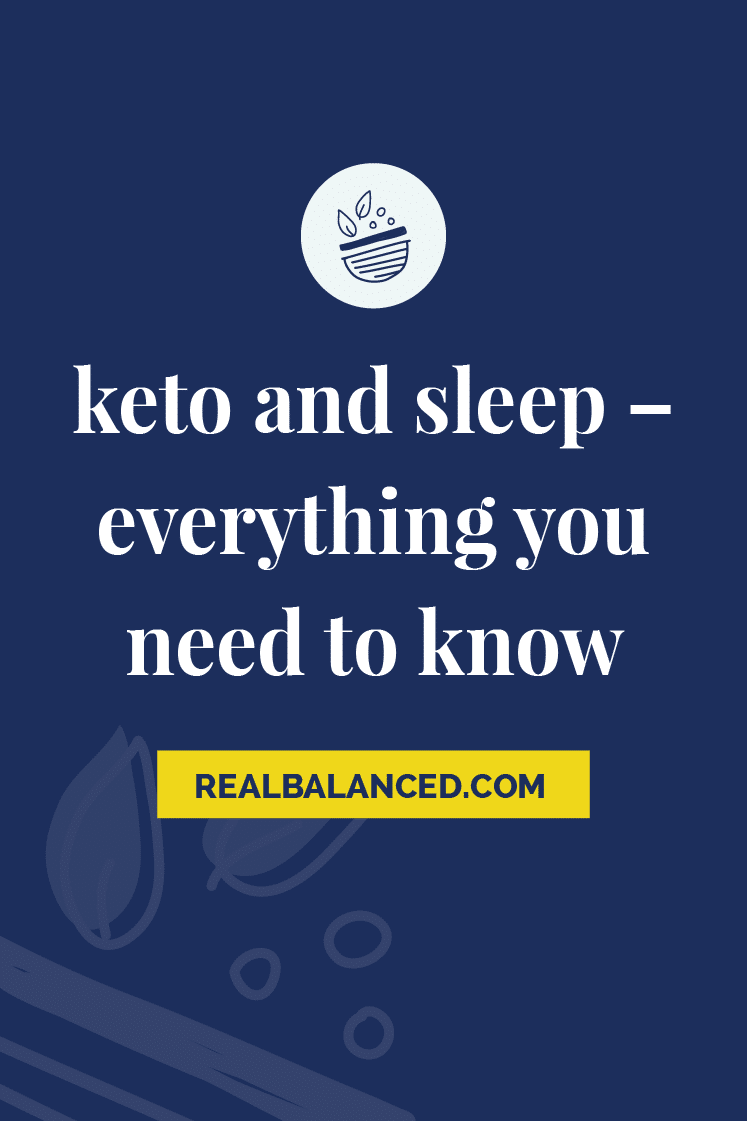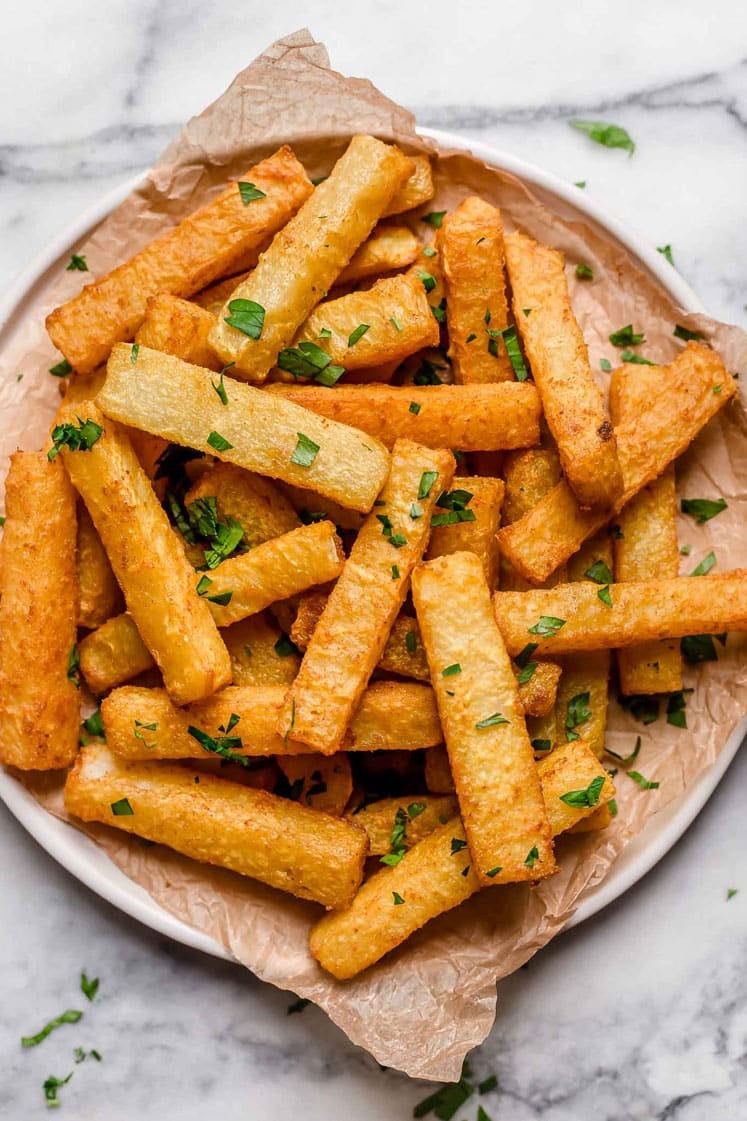How you eat can affect how you sleep.

What You Need to Know about Keto and Sleep
If you are suffering from insomnia after starting keto, there are some things you can do to get rid of it. You’ll feel so much better and actually burn more fat.
How the Keto Diet Affects Your Sleep
First, let’s look at how the keto diet could affect your sleep. Every person’s body is different and reacts to keto differently. That is why it is so important to stay in touch with your physician when you start any new eating plan.
The Keto Diet Might Cause Insomnia At First
Some people experience insomnia when they first start the keto diet. Why may this be? Likely because of the reduction of carbohydrates.
The amino acid L-tryptophan helps produce serotonin. Serotonin is a neurotransmitter that helps calm the body and is known to aid in a better night’s sleep.
Carbohydrates produce glucose, and this glucose helps the amino acid enter the brain. When you cut back on the carbs on keto, you might also experience restlessness and a bit of inability to relax and fall asleep because the glucose isn’t taking the serotonin to your brain.
Eventually, You May Sleep Better
The good news is that this little hump, much like the keto flu, is often temporary. After your body learns how to stop relying on carbs for energy, it will hopefully learn the new normal.
For some, a study shows that people following keto have higher quality sleep with increased REM sleep.
There are other studies that show more sleep benefits too. One study discovered less daytime drowsiness in people that ate on the keto diet.
What’s the science behind keto and better sleep?
It has to do with a brain chemical called Adenosine. According to Michael J. Breus, Ph.D., this chemical builds up in our body throughout the day. It helps us feel less alert as the day goes on. Studies show a ketogenic diet can increase Adenosine activity in the body, which contributes to a better night’s rest.
My Story of Night Terrors
I have personal experience with how the ketogenic diet radically improved my sleep habits. After just two days on keto, I stopped having night terrors, a debilitating problem that I dealt with every night for years.
You can read my complete story about night terrors and keto. I went through so many sleep studies and doctor appointments and none of them could pinpoint why I was unable to sleep.
But then after my body went into nutritional ketosis, I slept all night long. No more night terrors, no more daytime sleepiness. It was glorious!
How To Try and Help Your Insomnia When You are Eating Keto
Now that you know all about sleep and keto, what do you do when you seriously cannot seem to get any rest?
Try one of these home remedies for insomnia that help, especially when you are eating keto. Remember, insomnia on keto is usually temporary.
Prepare Your Body For Sleep
First, you need to take care of your body all day and prepare it at night to sleep. Some practical ways to encourage your body to fully rest at night are:
- Stay off electronics at bedtime. The lights on your phone and devices can actually stimulate your brain and make it more difficult to sleep. Give yourself a break from them before going to bed.
- Avoid naps. Be completely tired before bed instead of getting your sleep during the day.
- Stay active. Your body will feel better and have a deeper sleep if you get exercise of any form that day.
Consider A Melatonin Supplement
Another naturally-produced chemical that our body uses for sleep is melatonin. This gives us that drowsy feeling and signals our body it is time to fall asleep.
Melatonin is best for people who have trouble falling asleep.
Of course, though, talk to your doctor before adding a new supplement into your diet.
Consider A Magnesium Supplement
Finally, when you follow a keto diet, you might be cutting out carbs that contain magnesium. So it could be a good idea to add a magnesium supplement to your daily vitamin routine.
Again, talk to your doctor about this before adding a supplement into your daily routine.
How Sleep Affects Fat Burning
Sleep is necessary for your overall health, but one little added benefit to it is better fat burning too. If you chose the ketogenic diet because you want to lose weight, then take a look at your sleeping habits. Improving these habits could help you burn even more fat.
According to a study, losing sleep can actually inhibit fat loss. Participants in the study that lower-quality or less sleep lost the same amount of weight as the group that received adequate sleep. However, the group that slept better lost more fat.
More Keto Resources
- Macro Tracking on a Keto Diet – what is it and how do you do it?
- Healthy Fats on Keto – what are the best ones?
- Testing Ketones – how to test them and why you might want to.
- Keto Pre-Workout – What to Eat Before You Exercise
























Leave a Reply